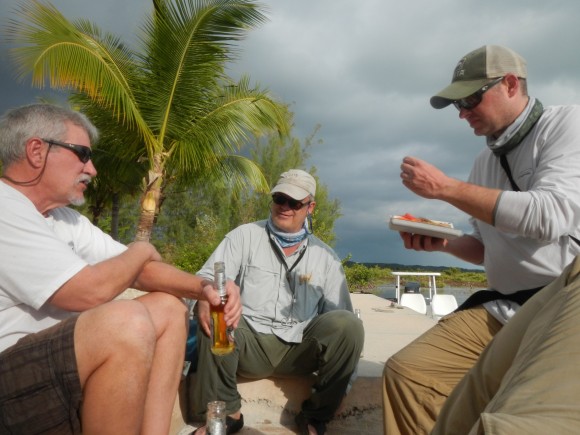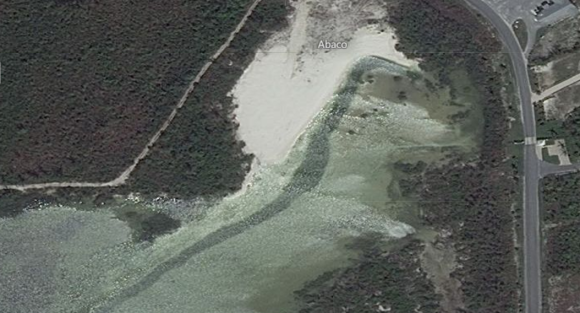The Abaco Fly Fishing Guides Association steps it up and brings some really good recommendations to the table.
I’m re-printing the whole thing. Well done folks. This is gold and I hope it is recognized as such.
Department of Marine Resources
Michael T. Braynen, Director
Nassau, Bahamas
Dear Director Braynen,
I am writing to you today to advise the Department that Abaco Fly Fishing Guides Association (AFFGA) disagrees with the proposed draft legislation.
We would like it to be known that the AFFGA DOES NOT RECOGNIZE the Bahamas Fly Fishing Industry Association as the voice of the fly fishing industry. Additionally, the AFFGA had no input into the proposed regulations.
Our association members are independent guides as well as guides that work for fishing lodges on the island of Abaco.
We thank you for the opportunity to provide our members views for consideration as you either reject or reshape the proposed draft legislation.
- Conservation fund – The AFFGA suggests that each island should retain their fishing permit fees and have control of how they are spent for conservation. Or, if all monies are pooled, 100% of the fee should go to the Bahamas Conservation Fund. Alternatively, 100% fees should pay for wardens to ENFORCE regulations.
- Fishing Permits – The AFFGA suggests that fishing permits be sold electronically and be purchased via credit card and that the proposed procedure as described in the legislation be disregarded as it is unnecessarily cumbersome due to the application process and because it can also be exclusionary.
- Vessel Permit – The AFFGA suggests that Vessel be defined as it could mean any kind of vessel of any size, with or without a motor.
The AFFGA suggests that a Foreign Registered Vessel fishing in Bahamian waters with a single flats skiff be required to purchase a sportfishing permit for the yacht and for the skiff as well as a flats fishing permit.
The AFFGA suggests that a Foreign Registered Vessel fishing in Bahamian waters with multiple flats skiffs be required to purchase a sportfishing permit for every vessel and a flats fishing permits for each angler and be required to hire a Bahamian fishing guide for each vessel that is flats fishing.
The AFFGA suggests that Bahamian Registered boats owned by second-homeowners be required to purchase a sportfishing permit and a flats fishing permit but should not be required to have a guide aboard the vessel to flats fish.
The AFFGA suggests that there is nothing in the legislation that prohibits nor penalizes non-certified guides from guiding.
The AFFGA suggests that there are airboats carrying wading anglers to the flats and that this needs to be addressed in the legislation.
- Certification of Guides – The AFFGA suggests that a fishing guide be a citizen as other immigration statuses have historically been abused by fisherman in other sectors.
The AFFGA suggests that only new guides should be required to take a fly fishing certification course and no refresher courses should be necessary. A one (1) year apprenticeship program with an experienced guide or lodge would be a more worthy training tool.
- Certification of Lodge Operators – The AFFGA suggests that a fishing lodge operator should be open to work permit holders if “operator” refers to a person or persons who manage the day to day lodge operations. If “operator” refers to “owner” The AFFGA suggests that the laws regarding foreign investment be amended to include consultation with relevant stakeholders to evaluate lodge density in a given area to prevent over fishing and irreparable harm to a fishery.
- Concessions to Fishing Lodge Operators – The AFFGA suggest that Guides should also be able to apply to the Minister of Finance for customs duty exemption for items imported for retail sale to anglers.
- Commercial Fishing in the Flats Prohibited – The AFFGA suggests that only netting of bonefish be prohibited on flats as prohibiting other Bahamian’s from making a living is prejudicial.
- General Offences and Penalties – The AFFGA suggests that the penalties are extremely excessive punishment especially if one considers fines and punishment for other criminal offences in the Bahamas.
- Fees – The AFFGA suggests that anglers who hire a guide to fish should not be required to buy a fishing permit.
The AFFGA suggests that fees for fishing permits should be competitive with the industry and that the application fee is excessive and the process of obtaining a license is too complicated.
- Certificate for (Flats Fishing Guide) – The AFFGA suggests that fees are prejudicial as there is nothing in the legislation that prohibits unlicensed guides from fishing.
The AFFGA suggests that if a license is required the duration should be multi-year as the procedure is onerous and expensive when compared to unlicensed fishing guides.
- Certificate for (Fishing Lodge Operator) – The AFFGA suggests that is prejudicial to require a fishing lodge to pay for certification when Floating Lodges (Motherships) are directly competing with lodges but are not subject to the licensing laws of land based Lodges in the Bahamas.
- Custom Duty Exemptions – The AFFGA suggests that Guides should also be eligible for Duty Exemptions as the draft only addresses duty exemptions for lodges which is extremely prejudicial to Independent Guides who do not work for lodges.
Because of industry-wide consultation meetings that our members have been a party to since 2009, we are aware that stakeholders are in agreement that the number one issue regarding our fishery resource is lack of enforcement, and without enforcement additional laws are merely suggestions.
Since the inception of the AFFGA our members have been proponents of a fishing license for anglers that is easily obtainable from a centralized source and all of the revenue could be used for wardens and enforcement of our present fishing laws and any new laws that this legislation brings about.
We are very concerned about the response from the fishing world in general and our fishing clients specifically regarding these ill-advised proposed regulations. Our fear is that the voice of a very few industry stake holders will irreparably harm our robust twenty (20) plus million dollar Abaco bonefishing industry.
Three of our members will be attending the consultation hearing on Monday and we look forward to a productive dialogue that will cumulate in a new version of legislation that includes all stakeholders, promotes the industry, and actually protects the resource rather than just make the fisherman and visitors to our country feel unwelcomed.
Sincerely,
Justin Sands, President
Abaco Fly Fishing Guides Association





